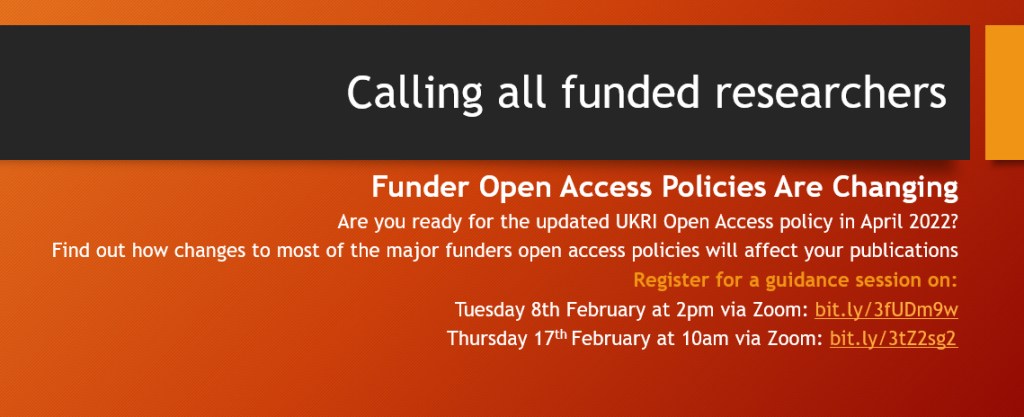| The eligibility of Nature, Nature research, Palgrave journals to use UKRI open access funding “UK institutions are in negotiation with Springer Nature to secure a transitional open access agreement for the Nature, Nature research journals and Palgrave journals. In accordance with UKRI OA policy, whilst Springer Nature provides a compliant route to OA publishing in Nature, Nature research journals and Palgrave journals via immediate publishing of the Version of Record OA under a CC BY licence, authors (and their institutions) are not able to use UKRI OA funds to pay for APCs in these titles as they are hybrid journals and ‘not part of a transitional arrangement that meets the sector’s requirements’. Whilst negotiations for a transitional agreement are ongoing, we hope to secure an arrangement for these titles that provides a compliant route for UKRI funded authors, but which does not compel an author or an institution to pay publication charges.” Authors can check the status of Nature, Nature Research journals and Palgrave journals at: Sherpa and JCT. Derived from JISC Statement 08/04/2022 The hybrid journal titles do not meet ‘transformative journal’ status and remain ineligible for UKRI funds. This follows a recently published THE article that offered an inaccurate interpretation of the current position. Further information: JISC our role in open access Supporting the transition to open access publishing – an update. Anna Vernon, JISC |
Category: Open Access
Rights Retention and Funder Open Access Policy Requirements
Several funders are revising Open Access (OA) requirements for peer reviewed research and Swansea University authors are encouraged to familiarise themselves with any OA policy that applies to their work.
For all disciplines, funded research articles need to be open access immediately upon publication via the green or gold OA route to improve the availability and impact of research .This ambitious change is part of a transitional shift towards sustainable and equitable open access. Wellcome and cOAlition S Funders endorsed this policy in 2021 and further funder alignment is imminent:
2022:
UKRI, AHRC, BBSRC, EPSRC, ESRC, MRC, NERC, STFC. (From 1 April 2022 – journal articles/reviews/conference proceedings with ISSN, or publishing platform)
NIHR, National Institute for Health Research (From 1 June 2022)
CRUK, Cancer Research UK (From 1 January 2022)
2024:
UKRI (From 1 January 2024 – monographs/ book chapters/ edited collections)
What is the Rights Retention strategy?
The Rights Retention Strategy (RRS) devised by cOAlition S has been introduced to ensure that funded research is subject to an open licence that allows researchers to retain the right to use and share their work.
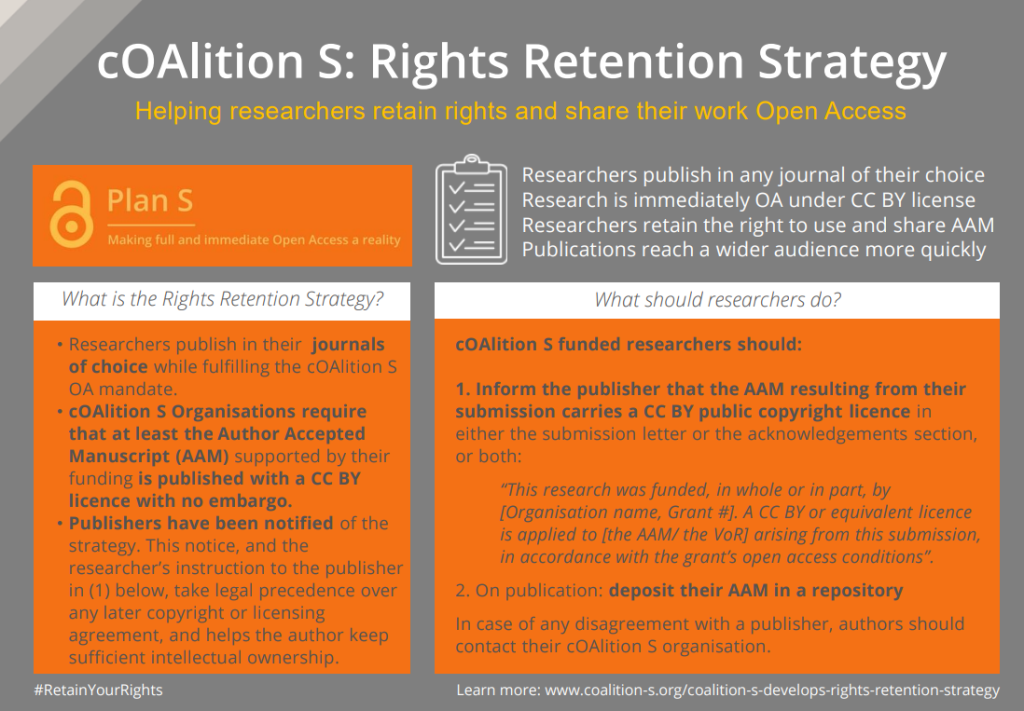
There are two routes to funder compliance:
- Gold open access route 1: final published version of record (VOR) document on a journal website or publishing platform with a Creative Commons CC-BY attribution licence or equivalent*.
- Green self-archiving route 2: researchers publish in a hybrid (subscription + open access) or subscription journal. When an author submits a paper using this route, the manuscript should include a statement indicating that the author will apply a Creative Commons attribution (CC-BY) licence or equivalent* to any author accepted manuscript (AAM) resulting from peer-review. The AAM will be released in the repository with no embargo and means that your article is freely available to read without a paywall upon publication. Green open access is the preferred route for making outputs available as it is cost free.
* Open government licence (OGL) to any AAM subject to Crown Copyright. By exception some funders permit Creative Commons Attribution No Derivatives (CC-BY-ND).
Publishers have been notified of the rights retention strategy for self-archiving in repositories by the large funders. However, there are some publishers like Springer Nature that will not permit the AAM to be shared or distributed under a creative commons licence when self-archiving papers published in subscription journals. They expect authors to agree to a publishing licence that includes an embargo period. If a publisher refuses to honour rights retention you may wish to seek an alternative publication venue or route to publication in order to meet funder open access requirements.
Journal Checker Tool: https://journalcheckertool.org/
Add journal title + Funder name + Swansea University to view Plan S compliance status.
Sherpa Fact is also available: https://v2.sherpa.ac.uk/fact/
Add journal title + Funder name
You will also find a list of funder open access policy conditions on our research handbook.
What does an author need to do to ensure funder open access compliance?
Route 1. Open Access Publisher Agreements (gold)
Swansea University has purchased agreements with some publishers to enable corresponding authors to publish their work open access at no additional cost. A list of transitional agreements (TA) is available from the Effective Research Publishing Handbook. These include selected titles from CUP, OUP, IOPScience, BMJ, PLOS, Springer, Taylor & Francis and Wiley. We also have membership schemes for discounted fees with SAGE, MDPI and ACS. By April, the current Swansea University UKRI open access block grant webpage for financial support, will be updated for hybrid journal payment applications that are not part of a Swansea University transitional publisher agreement. We can also support publication in other fully open access journals and platforms. For journals that do not meet the sector requirements for transition to open access authors will need to use alternative funding for payment of open access fees.
We emphasise that authors can still choose to publish in hybrid journals that are not part of a transitional agreement, or where their research organisation is not a participant in an existing transitional agreement. Authors can be compliant with UKRI’s open access policy either via self-archiving in a repository (where a journal accepts submissions acknowledging UKRI) or by using other funding sources for article processing charges.
UKRI Open Access Policy – explanation of policy changes 08/2021
Route 2. Open Access via self-archiving in a repository (green)
- Upon submission, the author informs the publisher that the accepted manuscript (AAM) arising from the submission is licensed CC-BY in accordance with the grant’s open access condition. You can use this form of words in the acknowledgment section.
“This research was funded, in whole or in part, by [Organisation name, Grant #]. A CC-BY or equivalent licence is applied to [the AAM / the VoR] arising from this submission, in accordance with the grant’s open access conditions’’
- Upon acceptance following peer review, deposit the AAM in the Research Information System (RIS). RIS will be updated to capture rights retention activity and the AAM or VOR where the publisher permits will be released in Cronfa with no embargo upon first publication.
- UKRI require a data access statement even where there are no data associated with the article or the data are inaccessible.
- Your funder may require a Europe PubMed Central (EuropePMC) deposit. Most publishers complete this step automatically for biomedical research articles that acknowledge MRC or BBSRC funding.
Key Takeaway
Route 1 – Check if there is an institutional TA publisher deal available to remove open access costs.
Route 2 – Use the rights retention statement at the point of submission. The elimination of embargoes and the use of open licensing will enable self-archived accepted manuscripts to be freely available in the repository upon publication.
Book Publishing
- There is an expectation that UKRI researchers will make monographs, book chapters and edited collections published from 1 January 2024 open access within 12 months of publication. Some exceptions apply (Point 17. UKRI)
- A CC-BY attribution license is required unless an exemption has been obtained in writing from UKRI to use an alternative creative commons license.
- A ring-fenced block grant will be provided to the sector to support UKRI monograph publishing.
- Policy exceptions apply to scholarly editions, textbooks and trade books.
Register for a short information session.
The focus will be on changes to the UKRI policy.
- Tuesday 8th February at 2pm via Zoom: https://swansea-uk.libcal.com/event/3827560
- Thursday 17th February at 10am via Zoom: https://swansea-uk.libcal.com/event/3827562
We will be running additional sessions throughout March and April (dates tbc).
- Quick Links
- UKRI Open Access Policy, April 2022
- NIHR Open Access Policy June 2022
- Wellcome Open Access Policy 2021
- cOAlition S FAQs
- cOAlition S Handout Flyer
- Creative Commons Licensing
- Swansea University Publisher Agreements and Memberships
- Swansea University UKRI Open Access Financial Support
- Swansea University Data Support Services
Contact Caroline Rauter or Ellie Downes via LibraryResearchSupport@swansea.ac.uk if you would like to discuss Right’s Retention or your funder’s Open Access policy.
Open Access Activity Bulletin October 2021
Celebrating International Open Access Week 25th October
In celebrating International Open Access Week, the following highlights from the activities of researchers across the university demonstrate how we continue to embrace and advance the spirit of Open Science and Scholarship.
Jump to Faculty Open Access Activity
Open Science, Scholarship and Access are very much within Swansea University’s DNA and there are several ways that staff and students can get involved in developing and informing our activities via the following groups.
Public Engagement Forum
The Public Engagement Forum is chaired by Dr Rhian Melita Morris and meets to discuss initiatives relating to the promotion, support and embedding of public engagement at Swansea university
Please email Rhian if you are interested in becoming involved: R.M.Morris@Swansea.ac.uk
UK Reproducibility Network (Swansea University Branch)
Dr Laura Wilkinson leads the Swansea University branch of the UK Reproducibility Network (UKRN) which is a national peer-led consortium that aims to ensure the UK retains its place as a centre for world-leading research. They do this by investigating the factors that contribute to robust research, promoting training activities, and disseminating best practice. They also work collaboratively with various external stakeholders to ensure coordination of efforts across the sector.
The UKRN’s meeting schedule and ‘Top Ten Tips’ for getting started with Open Research can all be found on the UKRN Swansea University Local Branch website and you can contact them at: ukrnswansea@swansea.ac.uk
Open Scholarship Forum
Swansea University’s Open Scholarship Forum is coordinated by Alexander Roberts and the Library Research Support Team and includes researchers and administrative staff from within faculties and professional services. The forum is a place to discuss and inform the development of university policy, research support and infrastructure in relation to Open Science and Scholarship.
To participate in the forum and the discussion on Microsoft Teams please contact: a.l.roberts@swansea.ac.uk.
Please remember that the Library Research Support team should be your first call when seeking Open Access guidance and advice. The Effective Research Publishing Handbook highlights publisher open access deals and discounts for Swansea University researchers, 12 Steps to Open Research, OA FAQs and more.
Swansea University Open Research Data Community

If you are looking for a safe place to store the data underpinning your research then please upload it to the Swansea University Open Research Data Community on the Zenodo Platform. Find out more about Research Data management at Swansea by visiting https://libguides.swansea.ac.uk/research-data-support-services/rdm-home
The Swansea University Open Research Data Community – https://zenodo.org/communities/swansea-university
Highlights from recent faculty activity
Faculty of Humanities and Social Science
English & History – Open Monographs, Open Access Resources, Articles and Journal
Dylan Thomas Online Collection

The new Digital Dylan Thomas Collection was made possible by an international collaboration between the Harry Ransom Centre at The University of Texas at Austin, the Dylan Thomas Trust and Swansea University.
The digital collection of the Welsh poet and dramatist Dylan Thomas (1914–1953) contains approximately 6,000 images of manuscripts of his poetry, stories, radio broadcasts, plays, and film scripts, as well as correspondence, drawings, photographs, and some career and personal papers is now available online to researchers and the general public for the first time.
By collaborating on the creation of digital preservation facsimiles of the objects held within the Dylan Thomas collection Swansea University has enabled wider access to these important research materials, not least for residents of Swansea, Thomas’s hometown, but for the rest of the world. Researchers, students, and members of the public now no longer need to spend considerable sums on travel costs, and accommodation to study this material and can instead focus on the material rather than the journey there. The burden of the travel costs associated with visiting collections such as this has historically been a barrier to wider engagement, and likewise meant that only those able to attract significant funding have been able to complete the journey. The digitisation of this collection has now brought about a democratisation of access.
Access the online collection at: https://hrc.contentdm.oclc.org/digital/collection/p15878coll98
Disability in the Industrial Revolution

Turner, D. M., & Blackie, D. (2018). Disability in the Industrial Revolution. Manchester, England: Manchester University Press. Retrieved Oct 18, 2021, from https://www.manchesteropenhive.com/view/9781526125774/9781526125774.xml
Disability in industrial Britain
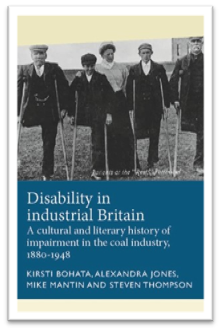
Bohata, K., Jones, A., Mantin, M., & Thompson, S. (2020). Disability in industrial Britain. Manchester, England: Manchester University Press. Retrieved Oct 18, 2021, from https://www.manchesteropenhive.com/view/9781526124326/9781526124326.xml
Journal Neo-Victorian Studies

The enterprise of the Swansea-founded OA peer reviewed journal Neo-Victorian Studies, General Editor: Dr Marie-Luise Kohlke is temporally double, staging an encounter between the Victorian and neo-Victorian, between the two periods’ aesthetic productions and material works, their discourses, ideologies, and socio-political contexts. It explores themes of modernity, alterity, and evolution through time and place in an ever more globalised and interconnected world. Two ages of literature and the arts reflect and converse with each other, the nineteenth century dreaming into the future, our own present moment reading and re-imagining the past, conjoined in an ever-changing interplay of light and shadows, visibility and obscurity, self and doubled other.
Access the journal at: http://neovictorianstudies.com/
Shakespeare, Race and Nation

Professor Kirsti Bohata has written an introduction to the special open access issue of the journal ‘Shakespeare’ on the subject of Shakespeare, Race and Nation
Read the introduction at: https://doi.org/10.1080/17450918.2021.1892815
Elizabeth Montagu Correspondence Online (EMCO)
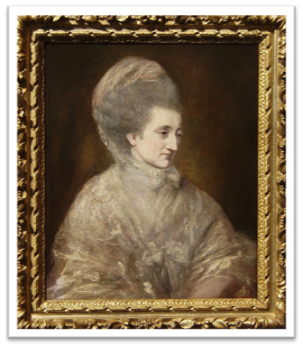
Professor Caroline Franklin from English, together with Alexander Roberts from the Digital Humanities and Research Data Team, and Oxford Brookes University has developed and hosted the world’s first Elizabeth Montagu digital edition of letters and scholarly commentary at Elizabeth Montagu Correspondence Online (EMCO).
Access the online edition at: http://emco.swansea.ac.uk
Linguistics
National Corpus of Contemporary Welsh
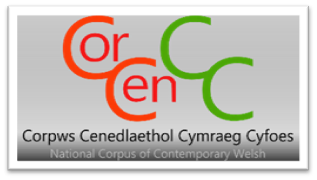
The National Corpus of Contemporary Welsh, CorCenCC, has recently been launched with major input from Swansea University researchers. This is a language resource for Welsh speakers, Welsh learners, Welsh language researchers, and indeed anyone who is interested in the Welsh language. CorCenCC is a freely accessible collection of multiple language samples, gathered from real-life communication. Click on the Explore or Download tabs to access the corpus and start to investigate Welsh language as it is actually used. The corpus is accompanied by an online teaching and learning toolkit – Y Tiwtiadur – which draws directly on the data from the corpus to provide resources for Welsh language learning at all ages and levels.
Access the Corpus at: https://corcencc.org/
Faculty of Science and Engineering
Oriel Science – Public Engagement
Oriel Science is a Swansea University public engagement project that takes research done by Swansea researchers, crafts these into interactive and visceral exhibits, and places them at the heart of the community. It welcomes members of the public and students on organised school visits. It has also run and given presentations at festivals. It is run by a small team including Swansea University researchers and is aimed at all members of the public to develop their familiarity with science, a.k.a. ‘Science Capital’ but with an emphasis on reaching underrepresented groups in the community. Published research shows that developing Science Capital is the best way to encourage Future Generations into university education.
Find out more about Oriel Science at: https://www.swansea.ac.uk/physics/research-and-impact/oriel-science-outreach/
Physics – Open Code and Open Data
Dr Ed Bennett from the Swansea Academy of Advanced Computing (SA2C) has successfully secured the first Fellowship offered by the Science & Technology Facilities Council (STFC) in Research Software Engineering. Fellowship—the only one awarded this year—competing with bids from the particle physics, nuclear physics, space science and astronomy research communities across the UK. Worth £600k, it will help drive the development of cutting-edge research software and promote the vital role of software in enabling high-quality research.

The Fellowship will support Dr Bennett in his aim to help the wider research community by improving software they use, to support and train other researchers and to conduct his own research.
Read more at: https://www.swansea.ac.uk/press-office/news-events/news/2021/04/university-software-engineer-wins-major-fellowship-award.php
Access the open data set at https://zenodo.org/record/5139618#.YWhCgRrMKUk on the Swansea University Open Research Community
Geography – Open Code, Open Data, Open Monographs and Citizen Science
Global Environmental Modelling and Earth Observation (GEMEO) group

One of Geography’s recent REF2021 impact case studies focusses on the work of Professors Peter North and Sietse Los as part of the Global Environmental Modelling and Earth Observation (GEMEO) group’s work to develop an open dataset of the earth’s reflectance. This work deals with code and datasets for improved weather forecasting and climate modelling. Open project partners included the UK Met Office, European Centre for Medium Range Weather Forecasts, European Space Agency, and suchlike.
For a flavour of the work and its impact read more at: https://www.swansea.ac.uk/geography/research-and-impact/improving-weather-prediction/
European Barrier Atlas
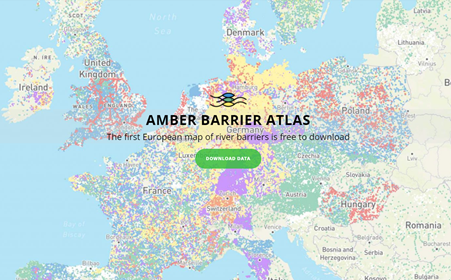
Professor Carlos Garcia De Leaniz and the AMBER project seeks to apply adaptive management to the operation of dams and other barriers to free flow in European rivers to achieve a more efficient use of water resources, one that maximises benefits and reduces impacts. With over 1 million river barriers, Europe has probably the most fragmented rivers in the world. Dams provide energy, water, fishing, and leisure opportunities to society, but also fragment rivers and can have a huge impact on biodiversity. Some barriers are obsolete and out of use and pose a flood and safety hazard and should be removed. AMBER is a consortium of 20 active partners, ranging from large hydropower businesses, river authorities, and universities. Importantly, AMBER has also a citizen science programme which encourages people to locate barriers while fishing, kayaking or walking along the riverbank using the Barrier Tracker app. Data from the app has helped to build the AMBER Barrier Atlas, which is the first comprehensive open access database of rivers barriers in Europe (Nature 588, 436-441). These results are helping local and national authorities to prioritize barriers in need of improvement or removal.
Access the project website at: https://amber.international/
Open Monographs
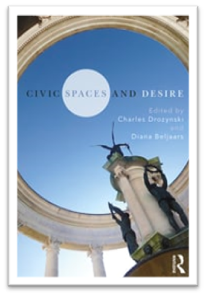
Doel, Marcus A. 2019, Civic space—and desire—deranged; From Le Corbusier to Georges Perec, Routledge
Read the open chapters at: https://www.taylorfrancis.com/chapters/oa-edit/10.4324/9781351184137-2/civic-space—and-desire—deranged-marcus-doel
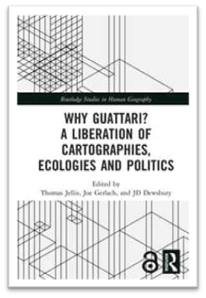
Doel, Marcus A. & David B. Clarke 2019, Through a net darkly; Spatial expression from glossematics to schizoanalysis, Routledge
Read the open chapters at: https://www.taylorfrancis.com/chapters/oa-edit/10.4324/9781315645827-3/net-darkly-marcus-doel-david-clarke?context=ubx&refId=dad3293f-fdd6-4e17-8350-377dfcac6e76
Publisher Deals and Discounts for Open Access
Swansea University Library (ISS) has signed up to several transformative deals* (TAs) with publishers that cover the cost of Open Access publication. Eligible corresponding authors submitting articles for publication in journals in these agreements will not be charged fees known as APCs (article processing charges).

We currently have deals in place for Swansea University affiliated corresponding authors with:
Cambridge University Press (starts end of May 2021)
IOP Science
Oxford University Press
PLOS (selected titles)
Springer (selected Open Choice Springer Compact titles)
Wiley
We have discounts in place for:
MDPI (10% discount)
SAGE (substantial discount)
Full details and eligibility criteria are on the Effective Research Publishing: Open Research & Open Access Guide. https://libguides.swansea.ac.uk/Research-Publishing/Home
The Publisher Deals and Discounts tab is updated each time the Library signs up for a new publisher deal. We anticipate that we will be adding additional publisher deals this year.
https://libguides.swansea.ac.uk/Research-Publishing/PublisherDeals
Other Links
*Background to transitional publisher agreements
Plan S: Principles and Implementation
Contact the Library Research Support team if you have questions on an individual deal or would like to arrange a training session to publicise the deals with Swansea Researchers.
British Heart Foundation (BHF) Open Access Block Grant
BHF Open Access Policy – October 1 2020 – 31 March 2021

Swansea University is in receipt of a small block grant to support the BHF Open Access policy. The Charity Open Access Fund (COAF) support has now ended and the BHF has allocated £2,507 to support researchers to comply with their Open Access policy.
This small fund is available on a first come, first served basis for payment of article processing charges until the end of March for any Swansea University corresponding author.
Please review the BHF policy requirements and contact openaccess@swansea.ac.uk to discuss financial support for your research article or non-commissioned review paper.
PLOS Open Access Publication Fees
JISC – PLOS Flat Fee Arrangement 2021

From January 1 2021 until December 31 2023 publication fees for open access will be automatically covered by the flat fee publisher agreement with Swansea University Library for the following titles:
PLOS Computational Biology, PLOS Pathogens, PLOS Genetics, PLOS Neglected Tropical Diseases and PLOS ONE.
To be eligible for full payment of publications fees, the corresponding author must be affiliated with Swansea University. Please ensure that you use your Swansea University email address and identify your affiliation in the publisher submission system.
- All article types in the five eligible journals are covered under the flat fee deal.
- Articles will be automatically published with a Creative Commons CC-BY Attribution license. PLOS articles are archived in LOCKSS and syndicated to PubMed Central/EuropePMC. PLOS requires data sharing where not subject to legal or ethical restrictions and has adopted the CRediT taxonomy.
PLOS reserves the right to accept or reject applications for financial support. If PLOS or the institution choose to reject the payment for Article Processing Charges (APCs), PLOS will invoice the authors individually, who retain full payment responsibility.
Further details on all open access publisher agreements and discounts for Swansea University researchers are listed on our Open Access Financial Support for APCs webpage.
Go to the recent PLOS blog on APC-free Open Access Agreement
Academic Publishing 101: The Journal Process
Often we assume that new researchers are already aware of how the process of submitting an article to a journal goes, and how long it takes, so this is a back-to-basics post to take you through the process step-by-step.
First things first: Choosing a Journal
There seems to be a new Journal announced online every other week, and this includes ‘predatory journals’ so how can you tell if a journal you may want to submit to is legitimate?
There are some online services designed to help you choose a journal – for example, Elsevier Journal Finder, Journal Selector.
1. Check their website; does it look professional? Does it link to other sites, for example members of the editorial board and their home institutions? Is the grammar and spelling up to scratch?
2. Are they indexed? To be indexed by the main databases (like Scopus and Web of Science) a journal has to adhere to strict criteria. Google Scholar is not transparent in the way they indexed and therefore can’t be reliable.
To check whether the journal is indexed go to Scopus or Web of Science and search the Journal title.
3. Some Journal titles are very similar so it is a good idea to check the ISSN. The ISSN should appear on the Journal ‘About’ pages, and you can check it on a site like Sherpa Romeo or search the Library Hub Discover for more information about the Journal. If it doesn’t appear on either of them, be wary.
What is a Journal Impact Factor and can it help me here?
The Journal Impact Factor is a measure reflecting the annual average (mean) number of citations to recent articles published in that journal. The JIF can be useful in comparing the relative influence of journals within a discipline, as measured by citations. However, it cannot be used as an indicator of the quality of individual articles or authors
If you’re still not sure, just get in touch and email me; e.c.downes@swansea.ac.uk
Submission process

Open Access and Copyright
The point at which decisions on Copyright and Open Access have to be made varies between journals but is generally around the Acceptance stage.
You need to know a few things;
1. If you intend to publish the ‘traditional route’ or in ‘subscription articles’, this means that you do not pay any publishing costs, but your article will be behind a paywall for anyone outside of a university, or in a university which doesn’t have a subscription to that journal. In this case you will be asked to transfer copyright to the publisher.
In this case, to comply with Swansea OA Policy, you will need to upload the Accepted Manuscript into RIS as ‘Green Open Access’
2. If you intend to publish Gold Open Access with the journal, this tends to result in the journal requiring an ‘APC’ – Article Processing Charge usually £2500+. More information about APCs and financing them are found on our Open Access page.
If this is the route you choose, the article is assigned a ‘Creative Commons‘ license which allows you to keep the copyright. The article is then freely available to anyone whether they subscribe to the journal or not.
For more information about Copyright and Author’s rights please see our Copyright guide, especially ‘Scholarly Works – Author Agreements with Publishers’
After Acceptance
What do I need to do after the article has been accepted?
1. Create a record in RIS following the guidance. This ensures that your paper complies with REF rules if it is eligible. If you don’t have the full details to fill in the record, that is fine. You or our team can fill in the details later, when information like the DOI, Volume and Issue number become available.
2. Share your work! If you don’t promote your work, who will?

SAGE Open Access

WHEEL (Wales Higher Education Electronic Library)
SAGE has an agreement with WHEEL (Wales Higher Education Electronic Library) from 2020 to December 2022.
The details of the agreement are as follows:
Subscription journals
Corresponding authors publishing an article in 900+ subscription journals in the current SAGE Premier package which offers hybrid open access publishing (SAGE Choice) can be published open access at a highly discounted rate of 200 GBP.
Authors do not need to take any action to benefit from this offer. SAGE will contact all eligible authors to inform them of the agreement and invite them to the SAGE Open Access Portal to take any additional steps needed to make their article open access under the terms of this agreement.
Gold open access journals
Corresponding authors publishing an article in a gold open access journal are also entitled to a 20% discount on the prevailing article processing charge (APC) for that journal. Click here for the participating Gold journal title list. This discount will be applied automatically in the SAGE Open Access Portal. Where an author is eligible for more than one discount, discounts cannot be combined but the highest discount available to the author will be applied to the APC due.
Eligible corresponding authors should use their Swansea University email address in all applications.
- The Author(s) can then accept or reject Open Access Publishing, and if selecting Open Access, digitally sign the publishing agreement. The Author(s) have 14 days to make the selection, otherwise the article will continue to be published in subscription format.
- The Author(s) then select a billing method for the £200 fee. They can pay directly by Credit Card or Invoice; or they can assign a third party bill-payer.
- Please note: this discount cannot be applied retrospectively (after the 14 days has elapsed).
- Some titles are excluded from this agreement and are listed here.
Corresponding authors who are funded by UKRI can apply for Swansea University financial support by completing the online application form at the point of acceptance. Full details are on the Open Access Library Guide.
Publish Open Access with IOP Publishing
 Image credit: @IOPPublishing
Image credit: @IOPPublishing
IOP Publishing (IOP), Jisc Collections and Swansea University Library Service have come to an agreement which enables researchers to publish their work on an open access basis at no additional cost in the majority of IOP’s hybrid journals. The agreement balances the cost of hybrid article publication charges (APCs) against journal license fees for 2020 onwards.
All corresponding (submitting) authors can publish in eligible journals open access without barriers, without additional cost, and be certain that they comply to any open access requirement. Eligible hybrid titles are available from this list.
Research articles and reviews (letters, papers, reviews and special issue articles) accepted for publication after 1 Jan 2020 are eligible, IOP will automatically identify qualifying articles and inform authors of their inclusion.
Included in the agreement are all subscription journals, owned by IOP Publishing, which offer a hybrid open access option. In addition, the agreement also includes selected journals which are published by IOP Publishing on behalf of our society partners.
How to take advantage of the agreement
1. Identify yourself clearly in the article submission form and the article itself
2. Use a Swansea University email address
3. Follow the IOP submission instructions
Articles are published with a Creative Commons CC-BY licence at no cost to you.
Discounted APCs
Corresponding (submitting) authors at subscribing institutions can also benefit from a 70% discount on the standard APC of hybrid journals not included in the above list that are published with some of our partner societies. Please visit IOP for further details. This discount is not available for any journal that is funded by page charges or submissions fees.
Open Access Publishing with Wiley
Publish Your Open Access Research Articles with Wiley
From March 2020 Swansea University is a participating UK institution in partnership with Wiley and the JISC Open Access Agreement for Institutions. This researcher support is provided by the Swansea University Library Service.

Author’s may publish articles in any of Wiley’s fully Gold Open Access, or OnlineOpen hybrid (subscription) journals with no open access costs to the author*. A list of Wiley’s Open Access and hybrid subscription journals is available from the Open Access Author Dashboard together with access to an Author Compliance Tool so you can check if you meet your funder obligations.
To publish without having to pay additional Article Publication Charges (APCs), the corresponding author must be from a participating UK institution and the article must have been accepted on or after 2 March 2020.
Eligibility criteria:
- Your manuscript must have been accepted on or after 2 March 2020
- You must be the corresponding author who is affiliated with a participating UK institution at the point of acceptance
- You must publish open access in a fully gold OA journal or a hybrid (subscription) journal that offers OnlineOpen
- If publishing in a hybrid (subscription) journal, you must order OnlineOpen at the point of acceptance by using the Wiley Author Services workflow
- As the Wiley Open Access Account holder, the Library Research Support team will authorise your request provided you meet the eligibility criteria. Please use a Swansea University email address to help us authenticate your application. We will contact you directly if we need additional information before approving your request
- This agreement cannot be used to cover additional charges (e.g. cover, color, and page charges), which individual journals administer separately
- Please ensure that you acknowledge your funder and provide details for any supporting data in the published article. This is a requirement for research articles supported by many funders, including UKRI
Quick Links:
How to Order Online Open
Author Compliance Tool
*subject to availability of sufficient funds and approval from eligible institutions’ Wiley Open Access Account holders.
You can find further details on our Open Access Library Guide.

